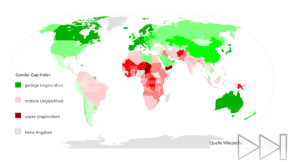 Politik / Sozialkunde, Wirtschaft
Politik / Sozialkunde, Wirtschaft


4675533 / 5563681
Sozialismus
Gleichheit, Solidarität, Gerechtigkeit?
Der Unterrichtsfilm beleuchtet die Grundlagen des Sozialismus, der als Gesellschaftsmodell auf Gemeineigentum und Gemeinwirtschaft beruht. Er hielt infolge der Industrialisierung als Gegenmodell zum Kapitalismus Einzug. Doch in den Ländern, wo sich der Sozialismus verbreitet hatte, erwies er sich als ökonomisch ineffizient und führte letztlich zur Einschränkung der menschlichen Grundrechte sowie zur Verletzung der Rechtsstaatlichkeit. Am Beispiel der DDR wird der der real existierende Sozialismus in all seinen schlechten, aber auch guten Facetten beleuchtet. Dr. Gregor Gysi, Dr. Wolfgang Thierse und Jörg Drieselmann geben authentische Einblicke. Prof. Dr. Hans-Werner Sinn nimmt aus ökonomischer Sicht Stellung. Ein Satz von Gregor Gysi zum Thema Deutsche Einheit macht nachdenklich: „Wenn man gesagt hätte, 90 % muss weg, aber zehn Sachen sind vernünftig, die übernehmen wir für ganz Deutschland, hätten wir eine andere Art der Vereinigung gehabt. Übrigens auch für die Westdeutschen, weil die Westdeutschen dann gesagt hätten: Dank der Einheit hat sich in diesen zehn Punkten meine Lebensqualität erhöht. So ein Erlebnis wurde ihnen nicht gegönnt.“ Gemeinsam mit dem didaktischen Begleitmaterial (klassische und interaktive Arbeitsblätter und Testaufgaben) ist der Unterrichtsfilm bestens zum Einsatz im Unterricht geeignet.
Trailer abspielen

Lehrplanzentral und an den Bildungsstandards orientiert
Passend dazu
Soziale Medien
Ein neuartiges Phänomen ist in den sozialen Netzwerken zu beobachten – das demonstrative Zurschaustellen des Reichtums der Eltern.
Gleichstellung der Geschlechter
„Männer und Frauen sind gleichberechtigt.“, so steht es im deutschen Grundgesetz in Artikel 3. Doch leben wir tatsächlich in einer geschlechtergerechten Gesellschaft? Wie hängen die Begriffe Gleichbehandlung, Gleichberechtigung und Gleichstellung zusammen? Wie kann die Gleichstellung der Geschlechter erreicht werden?










